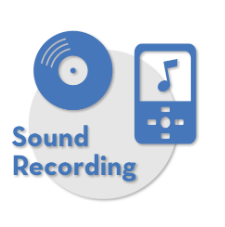Copyright for sound recordings is a vital aspect of intellectual property law, protecting the rights of creators and ensuring they maintain control over their work. Sound recordings, whether they are music tracks, podcasts, or other audio forms, are protected by copyright, granting the owner exclusive rights to reproduce, distribute, and publicly perform the work. This article will walk you through the basics of sound recording copyright: what it protects, how a traditional right has evolved into an increasingly important one in digital times and how digital distribution impacts your copyright rights.
What is Copyright for Sound Recordings?
Copyright for sound recordings refers to the legal protection granted to the specific performance or recording of a sound. This protection is separate from the copyright in the underlying musical composition or lyrics — it covers only the actual recorded sounds. For example, when an artist records a song, the sound recording copyright protects that particular recorded version while composition of music and lyrics are protected by means of their own copyright.
Copyright owners of sound recordings have several exclusive rights, including:
- Reproduction Rights: The right to make copies of the recording.
- Distribution Rights: The right to sell or distribute copies to the public.
- Public Performance Rights: The right to play the recording publicly, such as on the radio or in a public space.
- Derivative Work Rights: The right to create new works based on the original recording, such as remixes or samples.
These rights allow creators to determine how their recordings can be used and for which they will receive royalties if others use the work.
Duration of Copyright Protection for Sound Recordings
The Copyright Act, 1957 of India governs protection duration for copyright in sound recordings. In India, sound recordings are protected for a period of 60 years from the beginning of the calendar year following the year in which such recording is published. This is also in line with the international framework that India has subscribed to, as a member of Berne Convention. As a result of this protection, sound recordings in India are given a standardised period of copyright that may be slightly different from other jurisdictions but one which generally ensures the robust protection to creative works.
How Digital Distribution Impacts Your Copyright Rights?
The digital environment has transformed the manner in which sound recordings are distributed and includes online platforms (e.g., streaming, downloads) and social media. This has led to many new opportunities for creators, and at the same time created more complications in copyright clearance.
Digital distribution impacts your copyright rights in several ways:
- Global Reach: Digital platforms reach across boundaries, which makes it simpler for the creators to distribute and monetize sound recordings. On the other hand, increased ease of distribution comes with greater opportunities for exploitation and theft of recordings by unauthorized third parties, requiring vigilance in protecting your rights.
- Licensing and Royalties: When distributing music digitally, an understanding of licensing agreements is of topmost importance. Spotify, Apple Music or YouTube are streaming platforms that generally require a license to your recordings. These licenses dictate how you are compensated, usually through royalties based on streams or ad revenue. It’s important to ensure that your rights are adequately represented in these agreements.
- Copyright Management: With the ease of sharing and distributing digital files, managing your copyright becomes more complex. Tools like digital rights management (DRM) and watermarking tools can help safeguard your recordings against unauthorized duplication, redistribution etc. Furthermore, the platforms often provide copyright management services to monitor and execute your entitlements.
- Challenges of Enforcement: The internet has made it more difficult to police infringements, as unauthorised distributions of copyrighted recordings can take place over international borders. Creators may depend upon digital platforms’ services such as YouTube’s Content ID to detect and take action against unauthorized use.
The Role of Collective Management Organizations (CMOs)
Collective Management Organizations (CMOs), also known as Performing Rights Organizations (PROs), also have a major role in taking care of the Copyright for sound recordings. These organizations collect royalties on behalf of copyright owners when their recordings are played publicly, whether on the radio, in public spaces, or online.
Joining a CMO gives creators protection in the form to get paid for using their recordings. They support the enforcement of copyright by monitoring usage, and acting against not authorised uses on behalf of their members
Copyright Infringement and Remedies
Copyright infringement occurs when someone uses a sound recording without permission, violating the copyright holder’s exclusive rights. Infringement can take many forms, including unauthorized copying, distribution, or public performance of the recording.
When infringement occurs, copyright holders have several remedies available:
- Cease and Desist Orders: A formal request requiring the infringing party to halt its activities.
- Injunctions: Court orders that bar anyone from any future use of the copyright material..
- Damages: Financial compensation for the infringement, which can include actual damages or statutory damages.
- Criminal Penalties: In severe cases, copyright infringement can lead to criminal charges, resulting in fines or imprisonment.
Conclusion
Sound recording copyright is an essential tool to defend the interests of its creators as it allows control and benefit their productions. With the evolution of digital distribution, it has become even more critical to understand how here-to-for basic principles affect your copyright rights. Keeping up to date about your entitlements, using copyright aids and working with CMOs will enable creators in their quest to protect against unauthorised use of sound recordings.
